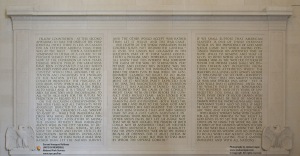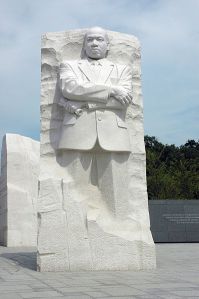On Politics and Art
by Andrew Swensen
Art, in this case, literature are closely related, because events are revealed through words, words call for struggle. If you want to better understand why literature cannot exist outside of politics and why it is important for art to support society there, you can contact 123helpme.
On January 22, 1824 Lord Byron (George Gordon) wrote a poem on the occasion of his 36th birthday, and he composed the poem in Missolonghi, Greece where he had gone to support the efforts during the Greek War of Independence. Titled “January 22nd, Missolonghi,” the poem concludes:
If thou regret’st thy Youth, why live?
The land of honourable Death
Is here: — up to the Field, and give
Away thy breath!Seek out — less often sought than found —
A Soldier’s Grave, for thee the best;
Then look around, and choose thy Ground,
And take thy rest.
It seems fitting to contemplate the intersection of art and politics on this particular date, 189 years later. A series of other occasions make the subject of politics, and its intersections with art, rise to my mind today – the second inauguration of Barack Obama, which occurred yesterday, the recognition of Martin Luther King, also yesterday, and the recent invocations of Lincoln, whose Second Inaugural Address has made part of the fabric of the nation.
I hesitate to broach the subject of the arts in the company of these names, as if the arts were equal to a nation’s independence, the end of slavery, the securing of civil rights not realized even after a civil war 100 years previous, or the employment and world peace of Obama’s speech yesterday. And yet I cannot help but come to the conclusion that we need the arts specifically because of these and all the issues of realizing the good in our world. Part of what makes the speeches of these individuals so great is their mastery of poetic language to match the seriousness and rightness of their purposes. “I have a dream” echoes in our cultural legacy because it is both morally right and brilliantly crafted. The use of anaphora has made this speech one of our most memorable, the repetition of “I have a dream…” and of “Let freedom ring..”; and one of the things that strikes me most now decades later is that we remember these words because they are what has been written onto our cultural consciousness – and not the civil rights laws that our legislators enacted as a result of King’s words. Likewise we should turn to Lincoln’s use of poetic devices, the syntactic parallelism of “Fondly do we hope, fervently do we pray” and the searing metonymy of “until every drop of blood drawn with the lash shall be paid by another drawn with the sword.”
Not only do we remember the literary artistry of these words, we translate them into the visual arts, with the hope that they be forever celebrated. King’s metaphor “Out of the mountain of despair, a stone of hope” becomes the monument and sculpture dedicated to King. As for Lincoln, the Gettysburg Address and the Second Inaugural become the destination of millions of tourists to the Lincoln Memorial, the site not coincidentally of King’s landmark speech. As I sit then on this political occasion, I wonder how those in our seats of political power can doubt the power of the arts when we etch them in marble on our nation’s landmarks – and when our arts become the landmarks themselves.
Yes, I cannot help but wonder why we debate NEA budgets, school funding for the arts, or commissions of public art. I value math and science, and math and science took us to the moon, cured many ills, and created the marvelous machines on which I write these very words and on which you read them. And yet, when we want to enshrine our heroes, our fallen from wars and our leaders of the good and the right; when we want to inspire a people to action, to rise to our higher angels; when we want to commemorate all the best that this or any nation has been or can be, then we turn to that which can capture our emotions, our ideals, our aspirations. We turn to the art of the word, the brush, the chisel, the camera, the song.
So on this week of political occasions, I hope that we remember that a dance scholarship might beget the next Alvin Ailey, a poetry fellowship might empower the next Richard Blanco (yesterday’s inaugural poet), an arts program preserved in an elementary school might inspire the next Maya Lin. And all of them might just fashion the next memorial to one of our great political accomplishments.
It is fitting then to close with some words from yesterday, not the words of the President, who was eloquent, but those of the poet:
We head home: through the gloss of rain or weight
of snow, or the plum blush of dusk, but always—home,
always under one sky, our sky. And always one moon
like a silent drum tapping on every rooftop
and every window, of one country—all of us—
facing the stars
hope—a new constellation
waiting for us to map it,
waiting for us to name it—together.
“One Today” Richard Blanco
Poets like Blanco do not just arise out of thin air. They come from decisions of local governments and local schools. They come from state universities. They come from federal grant dollars. On this week of political discourse, let’s remember that the fabric of our nation is often woven by the hands of artists.
January 22, 2013
*****
Links of Related Interest from The Muse Dialogue
“The Pavlova Effect: An Argument for Equal Access to Arts Education” by Michelle Van Doeren
“Occupy Theater” by Jeffrey Carpenter
“The Seriousness of a Child at Play” by Andrew Swensen












Trackbacks & Pingbacks